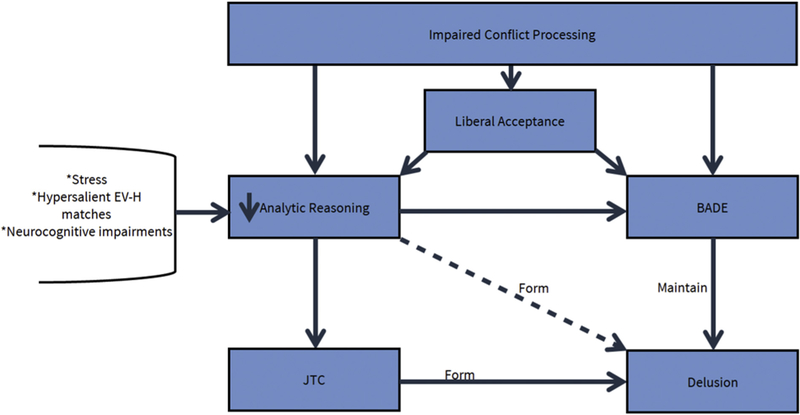Fig. 1.
Potential pathways from impaired conflict processing to biased reasoning to the formation and maintenance of delusions. The dotted line from analytic reasoning to delusions is included because it is currently unclear whether JTC exerts a unique causal effect on delusions above and beyond the effects of factors such as hypersalient evidence-hypothesis matches, liberal acceptance, and reduced engagement in analytic reasoning. The dotted line represents the alternative pathway to consider if JTC does not exert a unique causal effect (in which case the pathway through JTC would be superfluous). In this figure, the term “neurocognitive impairments” refers specifically to deficits in the machinery underlying analytic reasoning (e.g., impairments in cognitive control and working memory).

